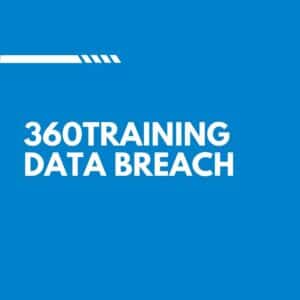
Washington state workers are protected by comprehensive labor laws, especially when it includes your right to meals and breaks. Whether you’re working in healthcare, retail, construction, or an office setting, understanding your rights to rest and meal periods is essential for your well-being and to ensure fair treatment under the law.
At Emery | Reddy, PC, we help Washington workers enforce their rights and recover compensation when employers violate labor standards. Here’s what you need to know about your legal protections regarding meals and breaks.
Meals and Breaks Requirements
Under Washington State law, most employees are entitled to:
Paid Rest Breaks
- Duration: At least 10 minutes for every 4 hours worked.
- Scheduling: Should be scheduled near the midpoint of your work period.
- Frequency: You cannot be required to work more than 3 consecutive hours without a rest break.
- Location: Employers may require you to stay on-site during rest breaks.
- Compensation: Rest breaks are considered hours worked and must be paid.
Meal Periods
- Eligibility: Employees working more than 5 hours in a shift must receive a 30-minute meal break.
- Timing: The meal break should begin between the second and fifth hour of the shift.
- Additional meal breaks: If your shift extends more than 3 hours beyond the scheduled end, you’re entitled to another 30-minute meal break within 5 hours of the previous one.
Paid vs. Unpaid Meal Breaks
Meal breaks must be paid if:
- You’re required to stay on duty.
- You’re on-call at the worksite.
- Your break is interrupted by work duties.
If you’re completely relieved of all duties for the full 30 minutes, the meal break may be unpaid.
Waivers and Variances
Meal break waivers: Employees may voluntarily waive their meal break if both they and their employer agree.
Rest break waivers: These cannot be waived under any circumstances.
Variances: Employers can apply for a variance to modify break requirements by submitting a formal application to the Washington State Department of Labor & Industries.
Special Rules for Healthcare Workers
Healthcare employees in Washington are subject to updated laws effective January 1, 2026, under Substitute House Bill 1879. These laws aim to protect workers in high-stress environments and include:
Uninterrupted Breaks
Healthcare workers must receive uninterrupted meal and rest breaks. Interruptions are only allowed in:
- Unforeseeable emergencies.
- Clinical situations where a patient’s condition could worsen significantly.
Flexible Scheduling
Combining Breaks: Employees may combine meal and rest breaks into one, with compensation rules depending on duty status.
Waiving Breaks: Employees can waive certain breaks under strict conditions, but all waivers must be:
- Voluntary.
- Documented.
- Revocable at any time.
- Stored in the employer’s system and retrievable upon request.
Recordkeeping Requirements
Employers must:
- Refuse to waive their breaks.
- Report violations.
- Revoke previously signed waivers.
If you feel pressured to skip breaks or sign a waiver, you may have grounds for a legal claim.
Industry-Specific Considerations
Minors and Agricultural Workers
Different standards apply to workers under 18 and those in agriculture. These groups may have modified break schedules based on safety and operational needs.
Domestic Workers
Domestic workers in Seattle, including nannies, housekeepers, and caregivers, are entitled to:
- 30-minute uninterrupted meal breaks.
- 10-minute rest breaks.
- Paid sick leave and minimum wage protections.
What to Do If Your Rights Are Violated
If your employer is denying you proper meals and breaks, here are steps you can take:
- Document everything: Keep records of missed breaks, shift schedules, and any communications with your employer.
- Review your employee handbook: Understand your company’s policies and procedures.
- Contact HR: Report the issue internally if possible.
- Seek legal help: If the problem persists, contact Emery | Reddy for a Free Case Review.
Your Rights Are Protected by Law
Your right to meals and breaks isn’t just a workplace courtesy, it’s protected by law. Employers who violate these standards can be held accountable, and workers have the right to fair treatment.
If you suspect your rights have been violated, don’t wait. Contact Emery Reddy today and let us help you protect your time, your health, and your paycheck.




